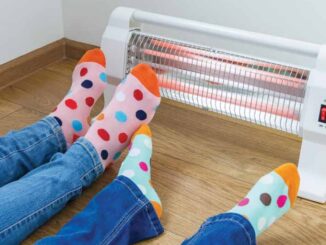
Home fires are as dangerous as ever — in fact, some sources say they are more dangerous because of the proliferation of electronics that can make a fire spread even faster and provide more sources for a fire to start.
Once a fire does start, it can take as little as two minutes to become life threatening. It’s why it is important to do a regular inventory of your home searching out fire hazards and correcting them as much as possible.
SMOKE ALARMS
Yes, it’s annoying when they go off because you overcooked the Thanksgiving pie, but they save lives. Make sure you have several at key places in your house. Either install 10-year batteries or schedule twice annual battery replacements. Some suggest replacing them when the clocks change, but if you live in a place where there isn’t daylight savings time, you’ll want to pick two other dates that are six months apart. For example, you might choose the winter and summer solstice days or Fire Prevention Week in October and April Fool’s Day (because you don’t want to be a fire fool).
KITCHEN INSPECTION
Cooking is the most common cause of home fires, usually on the stovetop. It’s why you want to search out fire hazards and follow safety guidelines such as never leaving something on the stove unattended. What should you look for? The American Red Cross suggests checking curtains, towel racks and paper towel dispensers and make sure they aren’t too close to the burners. Microwaves should be free of surrounding clutter and have its vents free. Keep a fire extinguisher within easy reach. Don’t ever put water on a grease fire.
MAINTAIN APPLIANCES
When it comes to appliances, the guilty culprit is a dryer 90% of the time. Clean out the lint screen after every dryer load. Check to make sure your appliances are up to date and meet current fire codes.
ELECTRONICS AND OUTLETS
As electronics proliferate, they must be plugged in somewhere. It’s why electrical outlets need to be high on your to-do list when it comes to searching your home for fire hazards. The Red Cross recommends inspecting outlets to see if they are overloaded or show signs of wear. Arrange things so as many appliances as possible have their own outlets and use extension cords to reach more distant outlets. Avoid running extension cords under rugs, even if it does make things look a little more attractive. Look to see what the manufacturer recommends for the wattage of bulbs for each of your lamps. Use bulbs with equal or less wattage. When you aren’t using your electronics, unplug them. Make sure you have sufficient space around televisions and computers because they can overheat and cause fires if they touch or are too near anything flammable.
EVERYWHERE ELSE
Finally, walk through such places as your garage, basement, yard and storage areas. Avoid cluttering debris or junk near your heater. Recycle old newspapers and don’t store them in damp, warm places. Keep any gasoline or flammable liquids tightly sealed in metal containers. Keep your gas or charcoal grill at least 10 feet away from your home and away from any overhead branches or structures.
